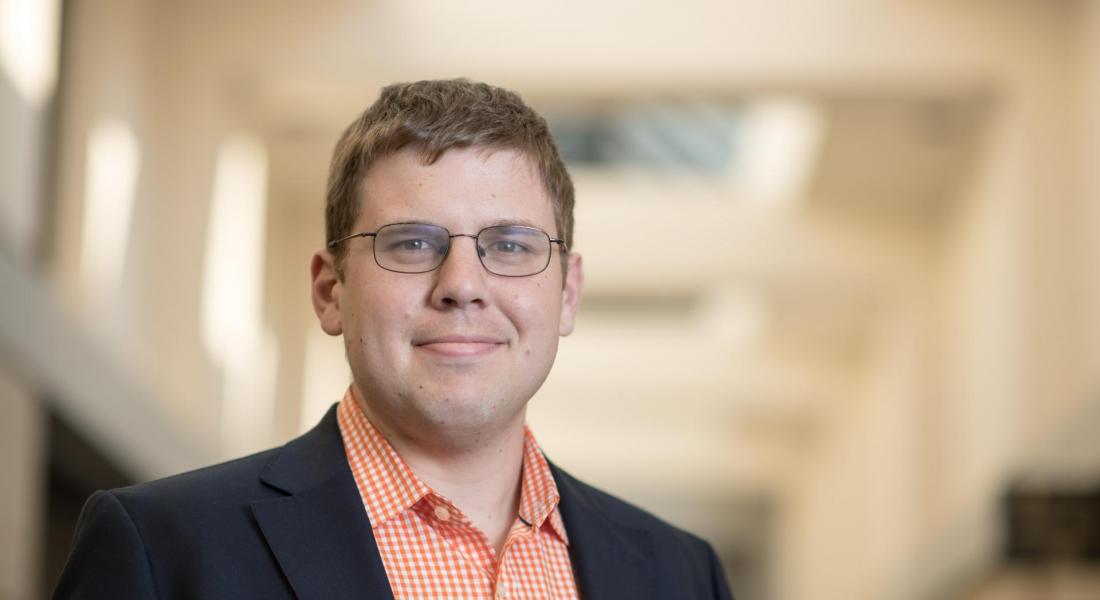
Benjamin Denison (political science), a dissertation year fellow at the Kellogg Institute for International Studies, became interested in military interventions while studying abroad in Belgrade, Serbia, as an undergrad. His dissertation examines the strategies ruling states use during military occupations, and how they impose local institutions, such as civil administrations and bureaucracies, through military force.
He has worked extensively with Kellogg Faculty Fellow Michael Coppedge (political science) on the Varieties of Democracy project, studying the spread of democracy and political institutions through colonial and military alliance networks.
Denison said in a recent interview that the best way for states to avoid getting entangled in a lengthy nation-building process, and the institution-building that comes with it, is simply not to intervene in the first place.
“It’s difficult enough to build your own state institutions,” he said. “It’s even more difficult to build another country’s institutions.”
He recently received a postdoctoral appointment as a Dartmouth Fellow in US Foreign Policy and International Security at the John Sloan Dickey Center for International Understanding, Dartmouth College.
What does your research focus on?
We know that when states intervene military abroad, sometimes they like to rebuild institutions versus just replacing leaders. My dissertation tries to understand: Why do we sometimes see institution building following armed invasion, versus just replacing leaders?
We have good evidence that deposing institutions from afar doesn’t usually work – think of the United States and Iraq – and yet it keeps being done. The motivating puzzle of my research is, why do states choose these strategies when we know they have a very low probability of success?
Why did you choose this research?
You see a continuing trend: If states impose institutions, things usually go badly. Coming out of the Iraq war, a lot of political scientists were researching the effects of imposing institutions, and the results were usually all bad.
But nobody had asked the question, why do you do it in the first place?
Would you have any advice for Bush following the US invasion of Iraq?
The best option to avoid these lengthy nation-building projects is to not intervene in the first place. Once you get involved, you’re largely rolling the dice, and you don’t know what the local institutions are going to be.
The argument I basically make is interveners often didn’t know what was going on in the local territory, but they often possess very high amounts of uncertainty.
And being able to ascertain what the local bureaucracies are doing is very difficult.
Once you invade, you don’t know what you’re getting into, and if you want to achieve your political objectives, you often end up stuck in these institution-building missions when you had no intention of doing so in the first place.
It’s very striking – there’s some research going back to the 1840s that shows the United States keeps finding itself in these missions, even though it says, “We’re never going to do it again.” And about 10 years later, it’s become a regular mission. I find that’s not unique to the United States, of course.
What are the implications for the US relationship with North Korea?
Prior to this most recent election, I did have some people telling me for my dissertation research, “Why is this relevant? Iraq showed that we’re never going to do this again.”
If you look at the news now, with discussions of North Korea and Iran, you’ll notice there’s basically no discussion of what happens if everything goes well. You’re still going to have this broken-down state with a regime that doesn’t particularly like you. And thinking about what’s going to go on in the post-war period and how you’re going to manage rebuilding that state is just not in the focus. That’s what my research tries to highlight.
What are the takeaways from your dissertation?
First, local institutions matter. Just because you’re a great power or major power, you can’t impose your will on local territories.
Second, you’re always going to be uncertain about what you find in that territory until you invade. So if you do not want to engage in institution building, then you should not invade in the first place because you don’t know what those local institutions that are crucially important are going to hold for you.
It’s not about whether you’re a democracy or not a democracy. But if you ask a bureaucrat, can you do this, will they actually be able to do it?
How does your research tie to Kellogg’s core themes of human development and democracy?
I focus on the difficulties that you can have imposing those by military force. And how, instead of having an armed imposition of democracy or an armed imposition of human rights, it needs to be local institutions that are the drivers of these.
That’s what US and other foreign agencies would be better focused on – trying to build up local capacity through investment and other opportunities, rather than the belief you can impose these things from abroad. There’s no quick fix for these situations.
What impact has Kellogg had on your research and your time at Notre Dame?
The formal resources have been very helpful, along with the informal networks and community of scholars here. In my six years, there have been different visiting fellows with different interests. I’m very interested in foreign state building, and we had lots of visiting scholars interested in writing about rebel groups, civil war, and building democratic institutions. Those are topics that are very different from mine, but it’s been very useful to talk with them and think through these issues.
It’s this intellectual community that I’ve been exposed to by going to the work in progress sessions and lectures, and even just getting coffee in the Hesburgh Center building, where I’ve learned more about various topics and various issues than I otherwise would have.





